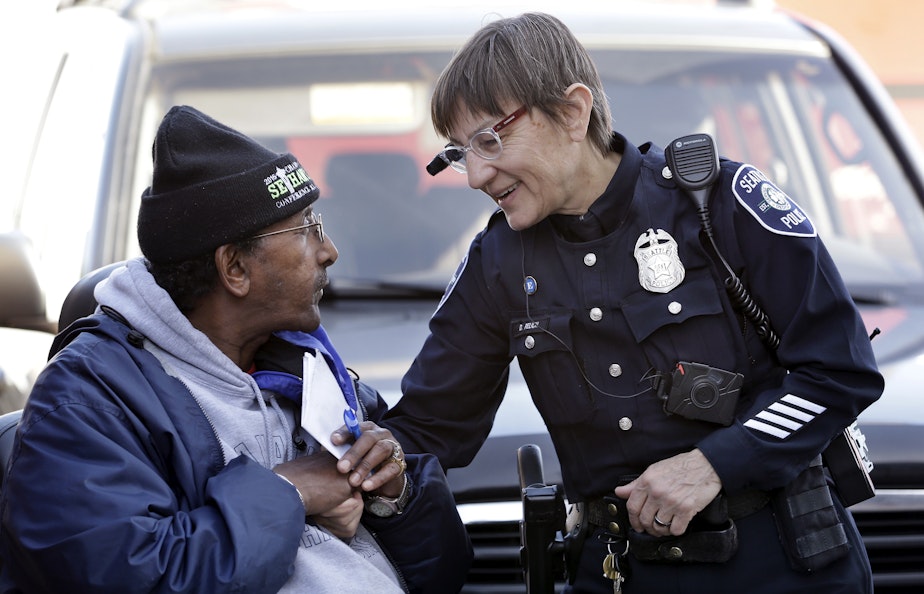Seattle police will wear body cams, despite complaints of 'exceptions'

Seattle's bike cops wear body cameras, and now all officers will start wearing them. The Seattle City Council approved a measure Tuesday to purchase the cameras this year.
Even after a delay, the full rollout is facing some opposition.
A law requiring all police officers to wear body cameras is already on the books in Seattle. But the City Council held off on paying for it until the police department met with community stakeholders to iron out the policy. SPD officials say they've completed that work.
Now, the City Council has voted to spend about $2 million on the program this year.
Proponents say cameras encourage police andsuspects to be more accountable for their actions. City Councilmember Bruce Harrell said studies of a similar program in Rialto, California back up that claim.
Sponsored
Harrell: "The use of force against people dealing with the police had gone down 60 percent. People tend to act differently, and often times more responsibly, when they know they are being recorded."
There's currently no statewide policy regulating body-worn cameras. That concerns other City Council members and civil rights groups, like the local chapters of the ACLU, NAACP, Council on American-Islamic Relations, and the Public Defender’s Association.
City Councilmembers Kshama Sawant and Mike O’Brien were the lone "no" votes on the body camera funding vote this week.
Shankar Narayan with the ACLU of Washington said officers would be able to turn off their cameras, which could hide any use of force.
Narayan: "There are a number of events that the officer is generally supposed to record, but there are so many exceptions to that policy, and exceptions within exceptions, that in our view the entire policy is unworkable, and basically allows an officer to record or not record, and justify that decision."
Sponsored
He said another concern is the policy indicates the cameras will be used for surveillance, not for officer accountability and oversight.
Dozens of cities in Washington already use body cameras, including Bellingham and Spokane. A statewide task force that Narayan is a member of is reviewing policies across the state.

